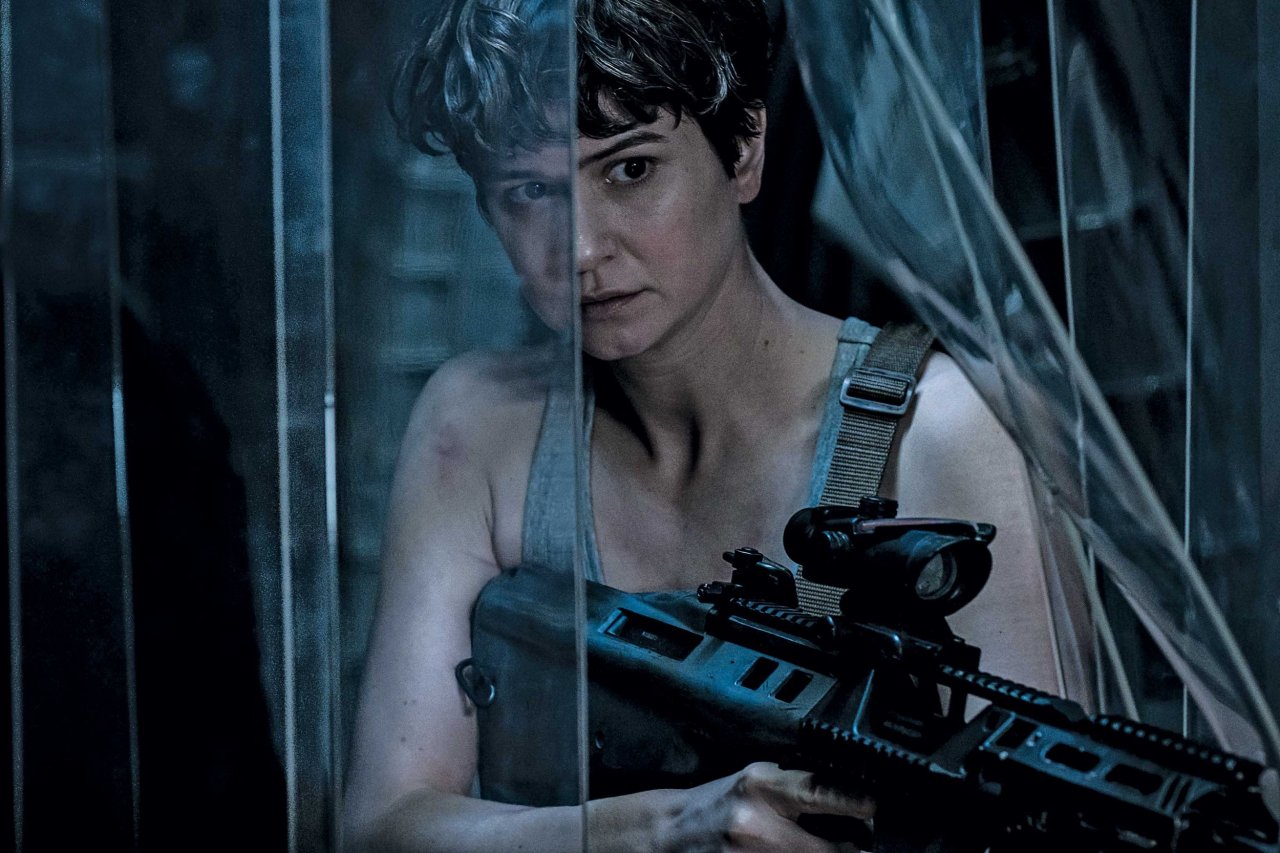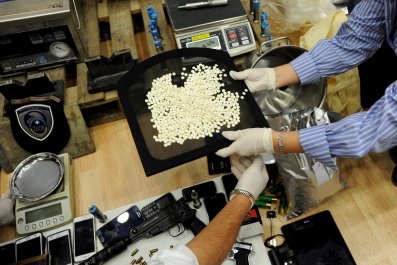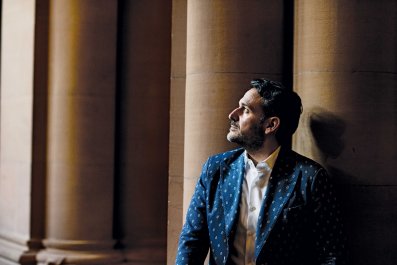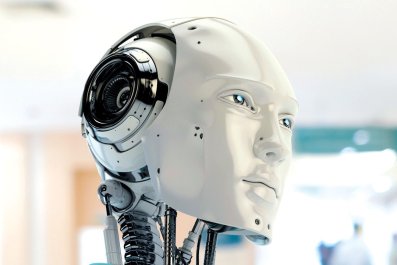"I got you, you son of a bitch!" screams one of several interchangeable live-bait humans in Alien: Covenant, after dispatching one of those toothy, drooling, beanbag-headed extraterrestrials that—nearly 40 years into one of sci-fi's most endlessly renewable franchises—don't look so alien to us anymore.
On the other hand, at least the line indicates that we're not in the granite-textured solemnity of Ridley Scott's 2012 prequel, Prometheus, anymore. The echo to Sigourney Weaver's battle cry of "Get away from her, you bitch," clarifies that film's hitherto cryptic connection to the events of Alien, and delivers a reference that admits allegiance to the pulpy, 1979 original.
Scott envisioned the first Alien as a straight-up science-fiction horror film. But James Cameron's later Aliens steered the franchise into muscled-up action terrain; subsequent directors David Fincher and Jean-Pierre Jeunet each had their own peculiar way with it, the former fashioning proceedings as a grisly prison drama, the latter playing up its dark comedy. Now, taking back the franchise he created, it falls to Scott, after the conflicted genre stew of Prometheus—part philosophical treatise, part monster movie—to bring the series back to horror of the goriest variety, slicked with slime and jittery with jump scares, as those slippery little sons (or daughters) of bitches pop out from every nook, cranny, stomach and spinal column.
As redesigns go, Alien: Covenant is not ambitious, but it's roaringly, repulsively effective. The setup is as simple as Prometheus was complicated. In 2014, 10 years after Prometheus set its crew of space voyagers on a lush but forbidding planet, the Covenant, a long-haul spacecraft, brings a new human crew in search of habitable land.
Among the travelers are Daniels (Katherine Waterston), a stern, doughty young explorer in the Ellen Ripley mold, Oram (Billy Crudup), a brisk captain whose devout Christian faith is about to face off against some very weird science, and—wait, is that David, the servile, English-voiced android played so vividly by Michael Fassbender in Prometheus? No, it's Walter, a supposedly more evolved, American-accented model. David, with unnerving serenity, is waiting for them when they land—the last film's only crewmate to have weathered the decade.
Thus begins a tale of two Fassbenders, as the Irish actor—an ambivalent witness to the action in Prometheus—emerges as the sinuous central figure of Covenant. Human drive and desire have cracked up both Walter and David's synthetic makeup, albeit to somewhat different ends. Alien: Covenant's terror pinches from more sources than its own franchise, even nodding to the mad scientist legend of Mary Shelley's Frankenstein. That's about as deep as any responsible critic can wade before hitting hot spoiler waters. Scott front-loads the film with complex theory, including a prologue with hints of what's to come: David, padding around a spartan, ice-white gallery decorated with centuries-old Nativity art, obliquely discussing origin with his aloof creator Weyland (Guy Pearce, briefly reprising his Prometheus role). But that sequence feels a distant memory once Alien: Covenant gets its guns out, so to speak, and the buckets of blood, guts and saliva begin sloshing about the screen. The film is at its most rewarding as an immediate spookhouse ride—foregoing the pristine visuals of Prometheus in favor of the grubbier aesthetic of the Scott's original film, this time with choppy alien-cam perspective. The director is a consummate commercial craftsman, adept at slick computer-generated effects, but he also knows the value of a cheap trick.
Scott has his fun through Fassbender, who brings back a curled-lip glimmer of camp to a franchise long mired in murk. Indeed, Alien: Covenant houses one of the actor's most fascinating characterizations to date, forging a pair of very real people from two frustrated human facsimiles—and in the case of David, linking him to a cinematic lineage of fey, inscrutable menace that runs from James Mason to Anthony Perkins. "Watch me, I'll do the fingering," he says, leering at his newer model during an android-to-android flute tutorial. This time, in addition to screams, Scott's offering a twist: In space, no one can hear you giggle.



















